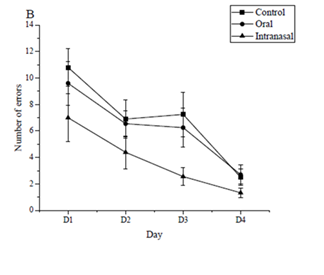Creatine Microparticles for Highly Effective Intranasal Delivery
Tech ID: 34030 / UC Case 2025-657-0
Background
Creatine is a naturally occurring molecule that plays a vital role in brain energy supply, and supporting cognitive functions. While oral creatine supplementation is known to enhance muscle performance, its impact on the brain is limited due to the blood-brain barrier (BBB). The BBB restricts the passage of many substances like creatine into the brain.
Brief Description
Professor Xiaoping Hu’s lab at the University of California, Riverside has developed a novel method that allows creatine to bypass the BBB and directly reach the brain. The technology works by delivering creatine intranasally using microparticles. These creatine particles have shown to not exhibit cytotoxicity, are highly stable, and are not disruptive to cell barriers. This technology is advantageous over traditional creatine monohydrate and anhydrous creatine because the smaller particle size ensures even distribution and greater permeability across the BBB.

Applications
- A new formulation to bypass the blood-brain barrier for direct delivery of creatine to the brain intranasally.
- To increase the amount of creatine that reaches the brain to improve the benefits of creatine like raised cognitive performance, reduced muscle recovery time, and increased athletic performance.
Patent Status
Patent Pending
Related Materials
Contact
- Grace Yee
- grace.yee@ucr.edu
- tel: View Phone Number.
Other Information
Keywords
Creatine, blood brain barrier, delivery, microparticles, brain, cognitive performance, athletic performance
